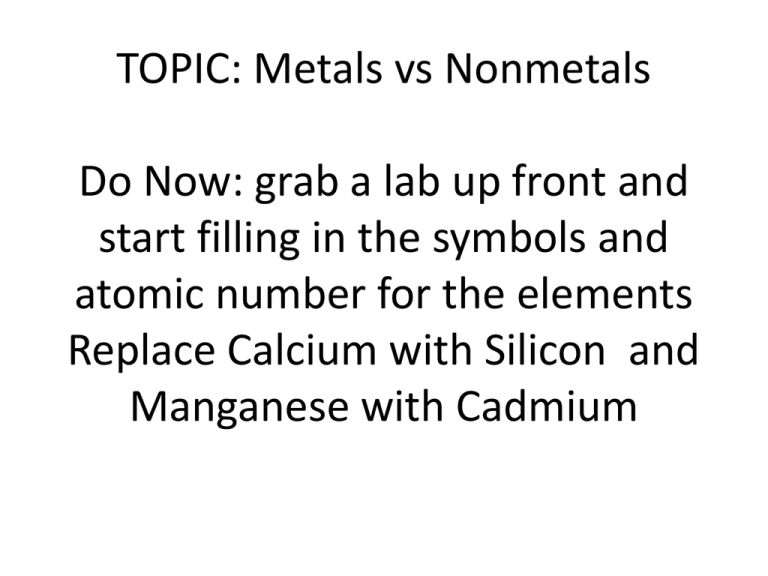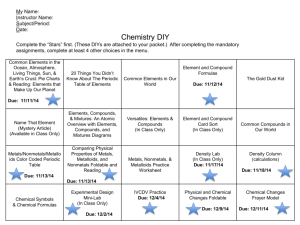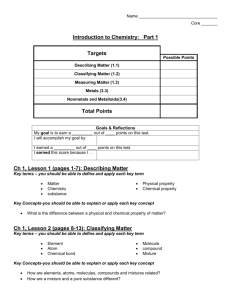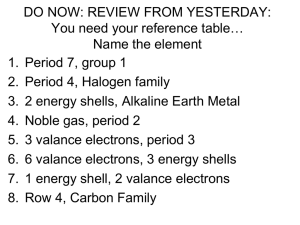TOPIC: Metals vs Nonmetals Do Now: Take three different crayons
advertisement

TOPIC: Metals vs Nonmetals Do Now: grab a lab up front and start filling in the symbols and atomic number for the elements Replace Calcium with Silicon and Manganese with Cadmium Classifying the Elements • 2/3 (67%) of elements are metals • Remaining elements: non-metals & metalloids (semi-metals) • Metalloids: – some properties of metals & some properties of nonmetals • Staircase: – dividing line between metals & nonmetals – elements to left are metals (except H) – elements to right are non-metals Properties of Metals • • • • • • Malleable – flattened into sheets Ductile – drawn into wires & tubes have Luster Good Conductors of heat & electricity Solid at room temperature (except Hg) Metals lose electrons & form positive ions “Metals are losers” • Most reactive metal is Fr • Most reactive family is Alkali Metals So…metals don’t want electrons, they want to get rid of them Properties of Nonmetals • • • • • generally gases or solids (except Br2) solids are Brittle solids are Dull poor conductors of heat & electricity Nonmetals gain electrons & form negative ions “Nonmetals are winners” • Most reactive nonmetal is F – Properties: OPPOSITE of metals So…nonmetals love electrons, they want to take electrons Properties of Metalloids 6 metalloids: – 4 on right of staircase: B,Si,As,Te, – 2 on left of staircase: Ge,Sb Each metalloid has some metallic and some nonmetallic properties – Example:Si • shiny like metal but brittle like nonmetal Most elements are solid at room temperature • GASES – Elements that are gases at STP Diatomics: H2, N2, O2, F2, Cl2 – Monatomics: noble gases He, Ne, Ar, Kr, Xe, Rn • Liquids (only 2 at room temp.) – Br2 (non-metal) and Hg (metal) Allotropes • Different forms of element in same phase – different structures and properties • O2 and O3 - both gas phase –O2 (oxygen) - necessary for life –O3 (ozone) - toxic to life • Graphite, diamond: –both carbon in solid form





